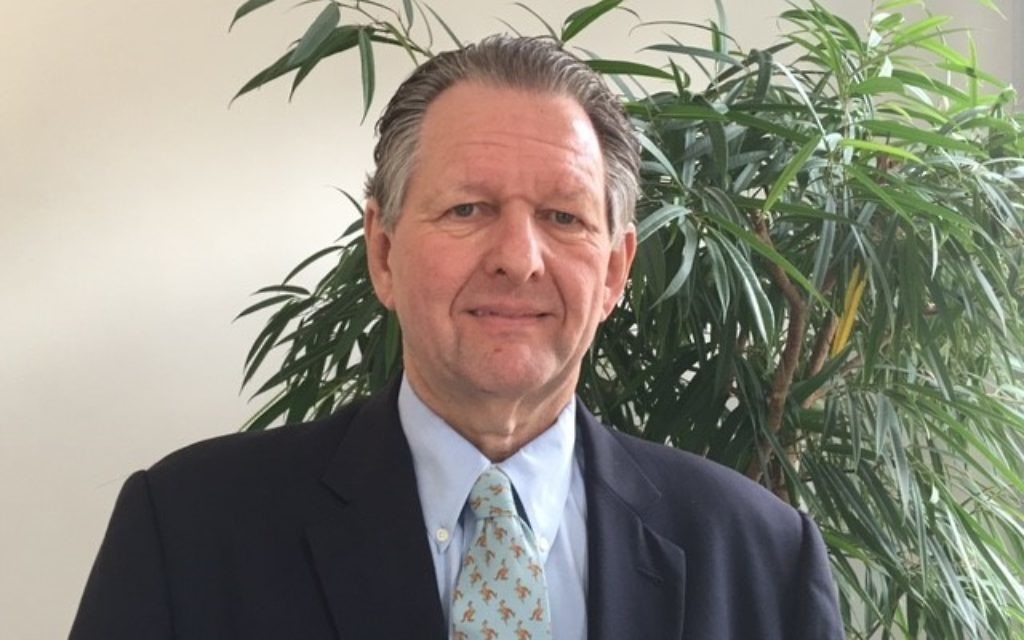Justice Pursued Against Nazi Guards
We can never have too much testimony about the Holocaust to remind the generations to come that it happened.

Christoph Rueckel barely seems to fit into the small office he uses at Baker Donelson’s Buckhead office, whether he’s reclining or leaning over the desk.
He’s physically imposing — well above 6 feet tall with a sturdy build — but it’s the presence he projects as he talks about his legal mission that fills the space. The German has practiced law for 42 years, but the past several years he has been on a race against time to bring Nazi war criminals to justice.
He’s not dealing with Adolf Eichmann types. As far as we know, all the men who pulled the levers on the Nazi death machine are dead, although some escaped justice and lived out their days in exile.
Get The AJT Newsletter by email and never miss our top stories Free Sign Up
But the cases Rueckel is working might be more important in the endless effort to ensure “never again” means something. He’s helping connect prosecutors with co-plaintiffs against the gears in that death machine: the guards, accountants and others who ensured that nothing slowed down the Final Solution during World War II, then went home and lived the next seven decades as if nothing bad had happened.
Rueckel helped convict two Auschwitz SS cogs in 2015 and 2016: accountant Oskar Groening, whose ghoulish work involved processing the property seized from camp prisoners, and guard Reinhold Hanning, who died before he could serve prison time. Groening, 96, is seeking a pardon to avoid serving any part of his four-year sentence, although his health is not an issue.
The punishment is not the point, however, nor is the worthwhile effort to add to the record of Nazi atrocities. We can never have too much testimony about the Holocaust to remind the generations to come that it happened, but court cases aren’t necessary to record that evidence.
As seen in the documentary “116 Cameras,” shown at the Atlanta Jewish Film Festival and streaming online via The New York Times, innovative efforts are being made to ensure that no one will forget what Jews experienced at the hands of the Nazis and their collaborators in Poland and other occupied countries.
But the cases of Groening and Hanning, as well as the forthcoming prosecution of two SS guards from the Stutthof concentration camp, demonstrate that each person bears responsibility for such crimes. The classic defenses of “I was just following orders” and “I didn’t know” aren’t valid amid atrocities.
Sitting in his Atlanta office during a three-day visit this month, Rueckel said the murder and attempted-murder cases against the Stutthof guards are simple if not easy.
The two men, both in their 90s, don’t deny they were guards at the camp, where some 65,000 people died. The testimony of people such as a New York client of Rueckel’s will demonstrate the deadly, sadistic conditions, and any other Stutthof survivors or relatives of the camp’s victims should contact the lawyer at christoph.rueckel@rueckelcoll.com to add to that evidence.
(Rueckel said his client survived Stutthof only because he overheard two guards talking about the need for labor in Germany late in the war, and he risked being shot by speaking to the guards and volunteering for the assignment.)
The key to a conviction, Rueckel said, will be establishing that the guards had to see what was happening at Stutthof and thus shared culpability through their failure to do anything other than continue with their duties.
The same holds for a few other potential prosecutions involving Majdanek, Auschwitz and Babi Yar, for which Rueckel also is looking for survivors or the relatives of victims.
The elderly culprits might never serve time in prison, but they will forever be rightfully known as murderers.




comments